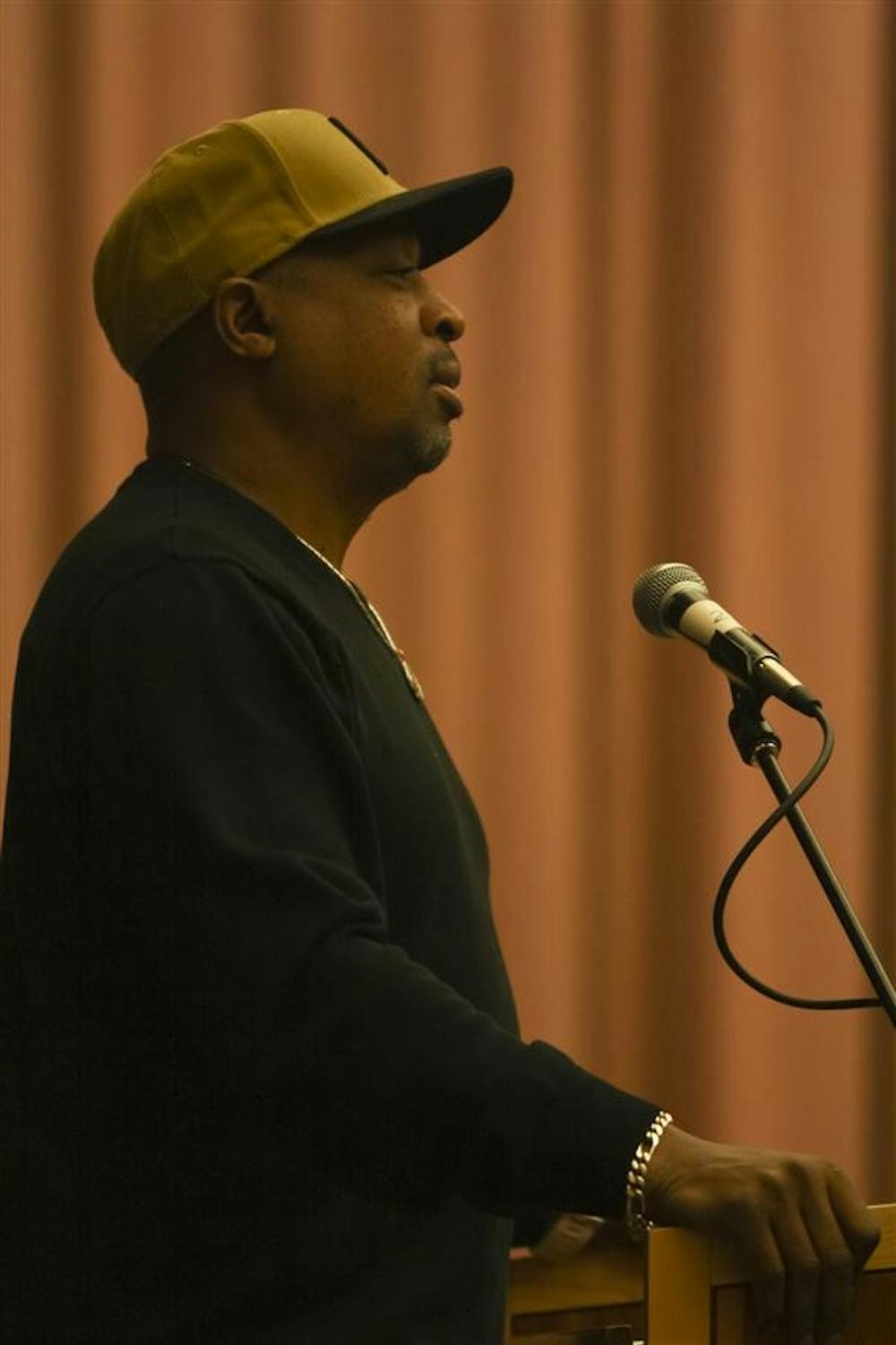“Raise your hand if you love R&B,” rapper Chuck D said, and the audience lifted its hands enthusiastically.
“But what is R&B?” Chuck asked, and everyone mumbled.
This Monday, rapper Chuck D of Public Enemy rapped to a crowd of IU students, alumni and Bloomington residents about everything but his career as a rapper. Chuck lectured in the Neal-Marshall Black Culture Center, and audience members listened as he spoke about “Race, Rap and Reality.” Public Enemy is a music group that hit billboard charts in the early 1990s, and the band’s politically-charged sound helped define social consciousness at the time.
“We love things we can’t define, or we love things that have been redefined,” Chuck said. “Minds are the real estates of the millennium. Define the things you say that you love.”
Chuck began his talk by saying every sound has a source, and that understanding the history of a music genre helps one predict its future.
“Hip-hop is planetary, and the world has surpassed us,” Chuck said.
His message was applied to America’s current political state. Chuck talked about how Americans are world citizens and should define their political standing with their own terms.
Audience member Joe Kaizer said he felt empowered by Chuck’s political message.
“You’re responsible for your own culture and can take control over what you’re doing,” Kaizer said.
Kaizer said he started listening to Public Enemy when he was a seventh grader in Peoria, Ill. The music gave Kaizer a window-view into life outside his small Midwestern town.
“I’d never seen a police beating in Long Island, you don’t read the New York Times when you’re 13 years old,” Kaizer said.
Listening to Public Enemy records — especially the second album — helped Kaizer gain a world perspective.
Union Board Lectures Director Hillary Anderson said the purpose of the lecture was to help individuals understand rap’s influence on culture.
As a high schooler, Anderson would go on walks and listen to Public Enemy songs. The band’s beats gave Anderson the confidence to really understand herself as a black teenager in Carmel, Ind.
“I hope some take away ideas about the music industry and learn to build something up — (audience members) use their hopes and ideas and turn them into something influential,” Anderson said.
Chuck’s final request to audience members was to hold their applause. If audience members had to clap, they should clap for themselves as individuals and should have the confidence to think outside of media.
“Once you’ve got yourself, everything else is a step down,” Chuck said.
The talk ended and, despite Chuck’s request, the audience clapped politely. But their applause was in the spirit of the lecture, and instead of listening to this pop-culture icon, the crowd beat their hands, and defined the talk by their own terms.
Rapper Chuck D lectures about race, rap and reality

Get stories like this in your inbox
Subscribe





